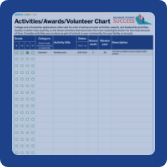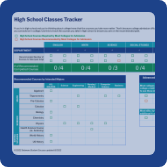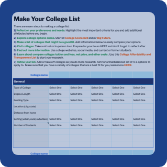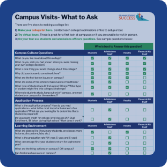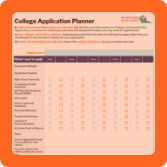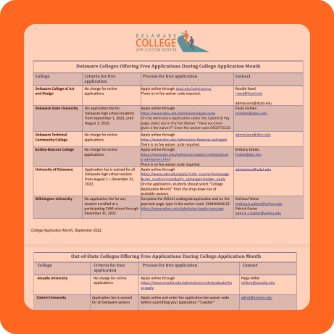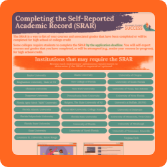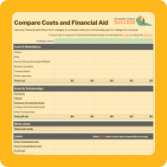![]()
Checklists
![]()
Preparing for college takes time. But when you break down the process into monthly steps, it becomes much more manageable. Use the checklists below to stay organized on your path to college success.
Summer Before Senior Year
Prepare Your College and Career Plans
Senior Year Planner
![]()
Senior Toolkit
![]()


